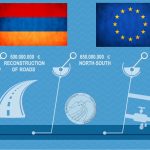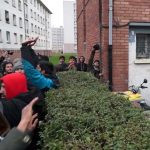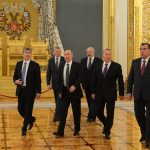- 13 July, 2023
- Foreign Policy
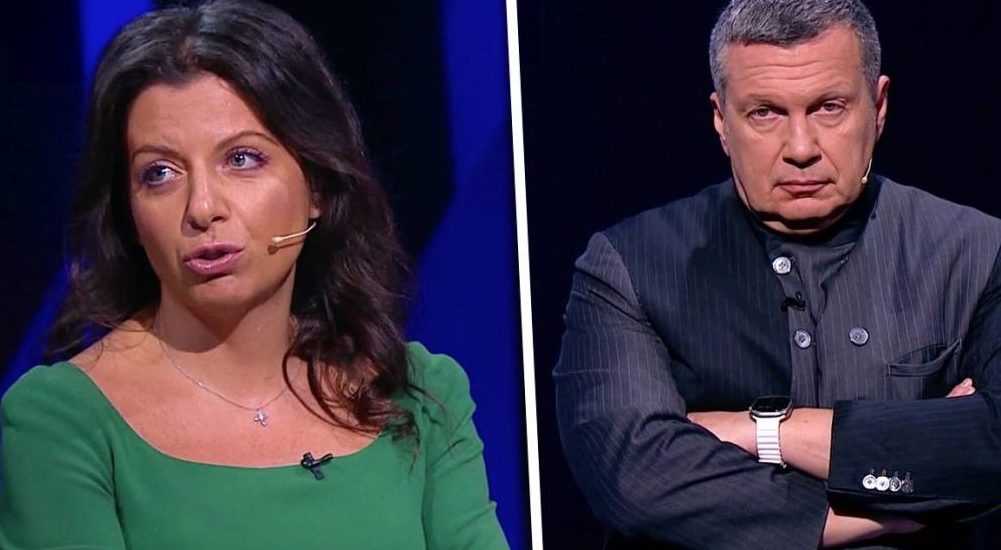
On June 23, the private military company “Wagner” announced that the units of the Armed Forces of the Russian Federation had fired rockets at their positions, resulting in a large number of casualties. This was followed by the statement of the leader of the group, Yevgeny Prigozhin, about the rebellion against the Russian armed forces. “This is not a military coup, this is a march for justice.”
On June 24, “Wagner” militants entered Doni Rostov, taking control of all military facilities in the city, and then moving towards Moscow in large military convoys.
Pro-Kremlin channels described what was happening as an attempt at a military coup. Some time after the beginning of the “Wagner” rebellion, Russian investigative bodies charged Prigozhin with an attempted military coup and armed rebellion, and Russian President Vladimir Putin called what was happening “treason, a blow to the state”.
However, Prigozhin did not complete his “march for justice” to Moscow. On the evening of June 24, the latter announced that after negotiations with the President of Belarus, Alexander Lukashenko, they were “withdrawing their convoys” and “leaving to the field camps according to the plan”.
Union of Informed Citizens NGO studied the media activity of prominent representatives of Russian propaganda, as well as the circulating tenets, during the two-day uprising.
Margarita Simonyan “was not in town”
Editor-in-chief of the state news agency “Russia Today”, one of the key figures of Russian propaganda, Margarita Simonyan, who is known for her activity on social platforms, did not make any post on any of the user accounts regarding the above-mentioned event during the uprising itself.
On June 23, when there was no information about the start of the uprising yet, Simonyan wrote two posts on her Twitter, Facebook and Telegram accounts, one about the President of Ukraine “using heavy drugs”, and the other about the invitation sent to her by mistake from the British Embassy in Russia.
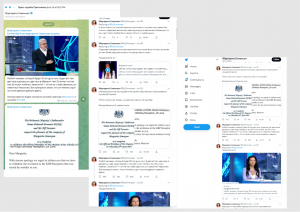
Simonyan did not write anything about the uprising until its end. She only wrote a post on the subject for the first time on June 26. In the post, Simonyan claimed that “she had traveled to the north of the country for filming within the framework of the “Mother Russia” project and “only found out about the uprising upon return”.
Solovyov was not in town either but was concerned
Vladimir Solovyov, the host of “Russia” TV station, whose Telegram channel publishes hundreds of posts and news, did not refer to the uprising in any way on June 23.
On June 24, several posts about the “Wagner” uprising appeared on the channel of the Russian propagandist, and most of them were not informative and did not analyze the situation. Instead, claims about “misleading and panic-creating campaign of Ukrainians” were circulating in the Russian information field. For example, one of the posts claims that the Telegram channels reporting on the situation are controlled by Ukrainians and that they spread disinformation, so “one should only follow official sources”.
In another post, Solovyov expresses his anger about the satirical content on the uprising in the Ukrainian media.
A number of official press releases regarding the rebellion were published in Solovyov’s Telegram channel. The topic was concluded with a video from Rostov-on-Don, where everything is “quiet and peaceful” and the streets and squares of the city are controlled not by “Wagner” militants, but by law enforcement officers.
On the Sunday following the uprising, during the “Evening with Solovyov” program, Vladimir Solovyov claimed that he was not in the city either when he learned about the uprising.
Caution exercised by Russian talk shows
Our monitoring showed that some political talk shows on Russian propaganda television carefully avoided the topic during the “Wagner” uprising.
The propaganda talk show “60 Minutes” was broadcast twice on June 23 (before and after the uprising). However, there is no reference to the “Wagner” uprising in any of the releases.
During the days of the uprising, there was no reference to the events during the “Who’s Against” program either.

When it was already allowed to express an opinion
On June 26, during the talk show “Evening with Solovyov”, when the uprising was already over, careful and restrained assessments of what happened were given. There was no personal or sharp criticism of Prigozhin and the “Wagnerians”, while this program is generally characterized by intolerance and criticism laced with personal insults, especially toward the Russian opposition, political figures opposing Putin, organizations, and ultimately, foreign powers.
Vladimir Solovyov continued to refer to the “joy and malice” of the West and Ukrainians regarding what happened. He also continued to claim about the Western conspiracy theory, directly blaming “Russia’s external enemies” for what happened.
Margarita Simonyan reminded about the civil wars in the history of Russia, describing the atrocities committed during them and the disastrous consequences for the people. In response to Simonyan’s comparisons, Solovyov noted that if the uprising did not turn into a civil war, then both the state leadership and society are wise, “they have learned lessons from mistakes in the past”.
The main conclusion of Alexander Babakov, the vice president of the Russian State Duma, was that “the West was not ready for the uprising”.
“They realized that they were not ready for changes of this nature in Russia. We showed the West that we are ready not only to unite during such challenges, but also to work in all directions, and they were not ready for this there,” said the Russian official.
During “60 Minutes” on June 26, theses about the all-Russian consolidation and the Western conspiracy around Putin passed like a scarlet thread. The opposition and Ukrainian figures, as well as the Western press, were severely criticized.
Thus, during the “Wagner” uprising, the Kremlin’s loyal propagandists were silent or extremely passive both on social media and on TV. Moreover, in their public speeches and broadcasts following the uprising, they exercised caution in criticizing Prigozhin and “Wagner”.
Nane Manasyan
Union of Informed Citizens NGO

